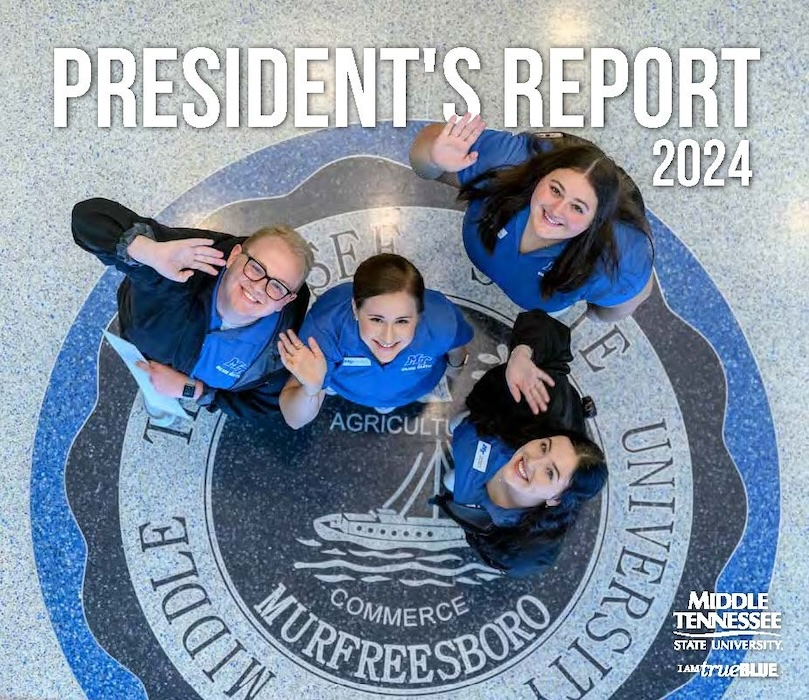Quest for Student Success Update
Filed Under: President's Post, Featured Articles
MTSU’s Quest for Student Success initiative is a series of reforms launched last year to increase retention and graduation through changes such as academic course redesigns, enhanced advising, and new student data-tracking software.
We developed this program to complement and reinforce Gov. Bill Haslam’s Drive to 55, which seeks to increase the percentage of Tennesseans with postsecondary degrees or certificates to 55 percent.
One component of the Quest unveiled late last year is the Student Success Advantage plan, which has the tagline “Graduate in Four and Get More.”
The plan will supplement HOPE Lottery Scholarships by $1,000 for incoming students who seek a four-year degree and stay on track to graduate on time. Our University will provide a $500 supplemental scholarship to students receiving the HOPE Scholarship after each of their first two years. Students must remain eligible for the HOPE Scholarship to get the award from MTSU.
Under the plan, we will provide what we call a Finish-Line Scholarship to graduating seniors that will return any tuition increases incurred during the four-year period of their studies.
We also recently eased eligibility requirements for five major scholarships. For example, Transfer Academic Scholarships are now guaranteed for students from all Tennessee community colleges.
In addition, even in a time of reduced state funding for higher education, we made a major investment in student success by reallocating money to hire 47 more academic advisors, who will help students maximize their investment and our incentives by providing more support, guidance, and encouragement to help them stay on track to graduate on time.
There is already evidence that the Quest is paying off. It’s no small feat that MTSU achieved increases in retention in fall 2014 that included an increase of 2 percent in the retention rate for new freshmen and a more than 1 percent increase in the retention of all students, both undergraduate and graduate.
Another example of how we are aiming for good results is the REBOUND program, which is led by Vincent Windrow, director of Intercultural and Diversity Affairs. REBOUND is targeted to improve retention rates for 564 fall 2014 freshmen who ended the semester with GPAs lower than 2.0. Traditionally, only about 20 percent of such students would return for the next semester. Emails and letters have been sent to invite these students to join the program. We expect that as many as 150 students will participate.
Early indicators are positive for persistence rates in this reform, as well. We’ll know more on the first day of class and on census day (Feb. 3).



